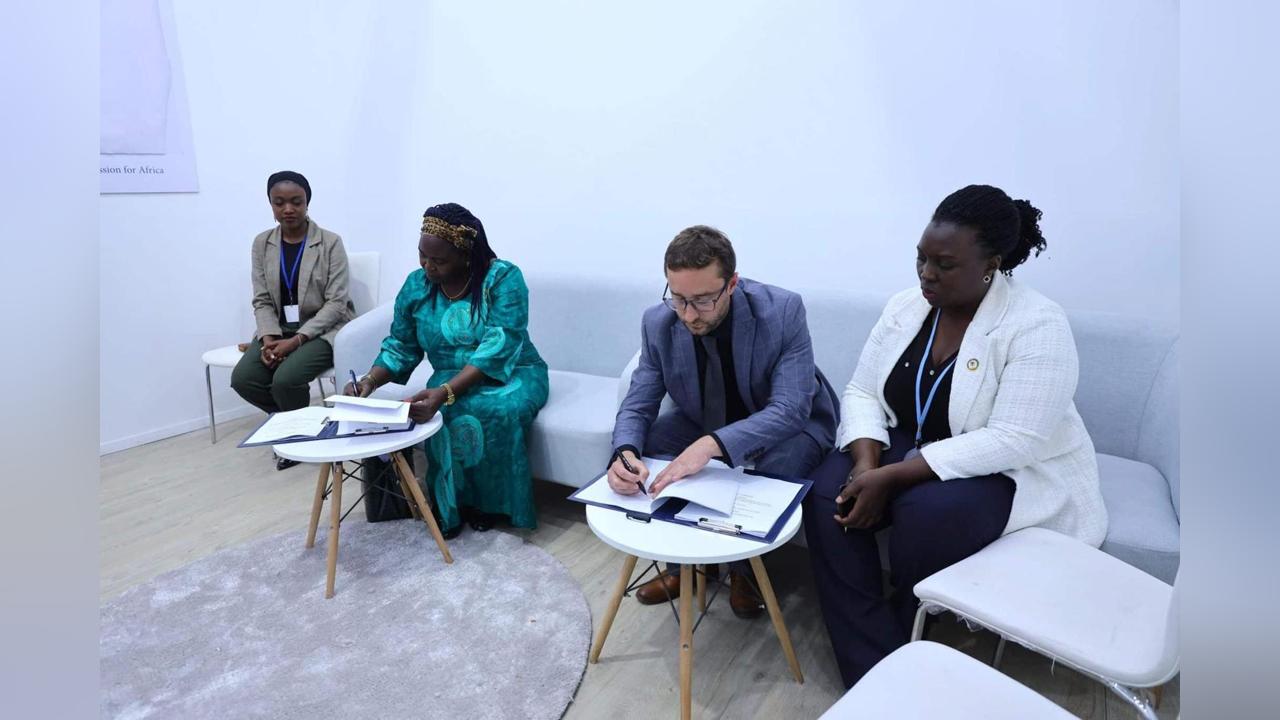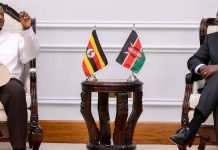Faridah N Kulumba
Africa-Press – Uganda. Last week Uganda’s Ministry of Energy and Mineral Development signed an agreement with the French independent power producer Hydrogen de France (HDF) Energy to create the first green hydrogen power plant in Uganda.
How green hydrogen power plant works
Green hydrogen, a low-carbon fuel, is hydrogen separated from oxygen in water molecules using a renewable source such as wind or solar power.
The announcement
The two parties after signing the Memorandum of Understanding issued a joint statement that revealed the project plan at the COP27 climate summit in Egypt but they did not give details about the size of the investment, the capacity of the plant, or which renewable energy source it would use to produce green hydrogen.
The MoU would initially focus on creating the appropriate regulatory environment, as well as the talent base to help support a green hydrogen plant according to HDF.
The costs
The French independent power producer HDF energy explained that its power plants which combine variable renewable energy sources with energy storage in the form of hydrogen typically cost around USD100 million each.
About HDF
French independent power producer Hydrogen de France (HDF) Energy is a global pioneer in hydrogen power. The company creates and operates high-capacity large-scale Hydrogen-to-power infrastructure to provide firm or on-demand electricity from renewable energy sources (wind or solar), combined with high power MultiMegawatt fuel cells.
HDF has developed plants around the world, including a USD181.3 million green hydrogen power plant in Namibia, which it says will be Africa’s first, due to come online in 2024.
New technology
According to HDF director for southern and eastern Africa Nicolas Lecomte, the hydrogen plant – which powers hydrogen production using renewable energy and then stores the hydrogen – was a relatively new development that would require regulatory changes in Uganda.
The benefits of the green hydrogen power plant to Ugandans
This will be Uganda’s first-ever green hydrogen production plant. Uganda’s Ministry of Energy headed by Ruth Nankabirwa Ssentamu believes that this new technology will provide opportunities to transform Ugandans by creating jobs. The government of Uganda is working hard to exploit all the energy sources available in the country that has a minimal environmental impact.
The green hydrogen project will supply the country with clean electricity all year round, eliminating intermittency challenges through the application of long-term hydrogen storage.
Uganda and France relations
When Uganda got independence in 1962 France was at hand to support the young nation sharing its long history of independence. However, the two nations were affected by Uganda’s foreign policy including its interventions in the Democratic Republic of Congo (DRC).
Uganda and France’s diplomatic relations were restored in 2013 with President Yoweri Kaguta Museveni taking part in the Elysee Summit for Peace and Security in Africa and the Ugandan Minister of Foreign Affairs visiting Paris in May 2014.
President Museveni very much appreciated his visit to Paris in September 2016, which opened up new possibilities for partnerships in irrigation, transport, water, revitalization of the national airlines, and many more.
Cooperation in other sectors
Since 2009, the Agence Francaise du Development (AFD) has been in Uganda and has committed almost EUR240 million to the country. This was to support Uganda in the water, sanitation, and energy sectors.
The two nations’ cooperation in natural resources
Uganda and France’s cooperation is also economic. French companies such as Total and Lafarge have made substantial inroads, in Uganda’s oil sector. There are now about 30 French companies operating in Uganda, across a wide range of sectors hydrocarbons (Total Distribution, Total E&P, Friedland-Ortec).
On 11th April 2021, the President of Uganda Yoweri Kaguta Museveni, and the President of Tanzania Samia Suluhu Hassan signed an agreement to build an oil pipeline that will ship crude oil from fields in Western Uganda to the international market. The two countries together with the French oil giant Total and CNOOC signed a deal worth USD3.5 billion for the construction of the pipeline which would be the world’s longest at 897 miles.
On 1st February 2022, Chines and French oil giants finally sealed a USD10 billion deal to unlock Uganda’s energy resources and build a vast regional pipeline, a mega-project that has incensed environmental groups.
The final investment decision was to pave the way for the export of millions of barrels of black gold that was first discovered in 2006 in Uganda, one of the world’s most biodiverse regions. Lake Albert lies atop an estimated 6.5 billion barrels of crude oil, of which about 1,4 billion barrels are currently considered recoverable.
However, the oil pipeline is facing challenges after the European Parliament criticized the project, calling for TotalEnergies to consider an alternative route. European Parliament was reacting to the grave concern around alleged human rights violations in Uganda and Tanzania. The giant companies defended themselves by saying that their new fossil projects are used to serve the global demand, for hydrocarbons.
For More News And Analysis About Uganda Follow Africa-Press






